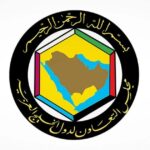Qatar recently hosted the 38th meeting of the WHO’s Eastern Mediterranean Regional Commission for Certification of Poliomyelitis Eradication (RCC), where countries shared updates on their progress towards maintaining a polio-free status. Dr Hanan Balkhy, WHO Regional Director, thanked Qatar for hosting the meeting and emphasized the importance of surveillance and laboratory performance in achieving polio eradication. The RCC recognized the progress made in strengthening surveillance and outbreak preparedness in the region, with 18 out of 20 countries meeting certification standards. Afghanistan and Pakistan, the two remaining polio-endemic countries, also presented progress reports.
Dr Salih Al Marri, Assistant Minister for Health Affairs, highlighted the importance of maintaining high-quality poliovirus surveillance as global eradication approaches. Qatar, being polio-free for nearly three decades, continues to meet certification standards. The RCC recommended updating national surveillance and outbreak response plans to ensure preparedness for any poliovirus detections. The commission stressed the need to eliminate gaps in surveillance sensitivity and population immunity to prevent poliovirus transmission.
The Eastern Mediterranean Region has 12 poliovirus laboratories, with regional coordination playing a significant role in processing and testing samples. Dr Yagoub Al Mazrou, Chair of the RCC, emphasized the importance of maintaining certification-standard surveillance and high levels of population immunity as the region nears interruption of polio transmission in Afghanistan and Pakistan. With continued commitment, the region is well-positioned to close outbreaks and eradicate poliovirus in its remaining hiding places.
In conclusion, the WHO’s Eastern Mediterranean Regional Commission for Certification of Poliomyelitis Eradication met in Qatar to discuss progress towards maintaining a polio-free status in the region. Dr Hanan Balkhy highlighted the importance of surveillance and laboratory performance in achieving polio eradication, with 18 out of 20 countries meeting certification standards. The commission recognized the progress made in strengthening surveillance and outbreak preparedness, with a focus on eliminating gaps in surveillance sensitivity and population immunity. With continued commitment, the region is close to eradicating poliovirus in its last hiding places.










